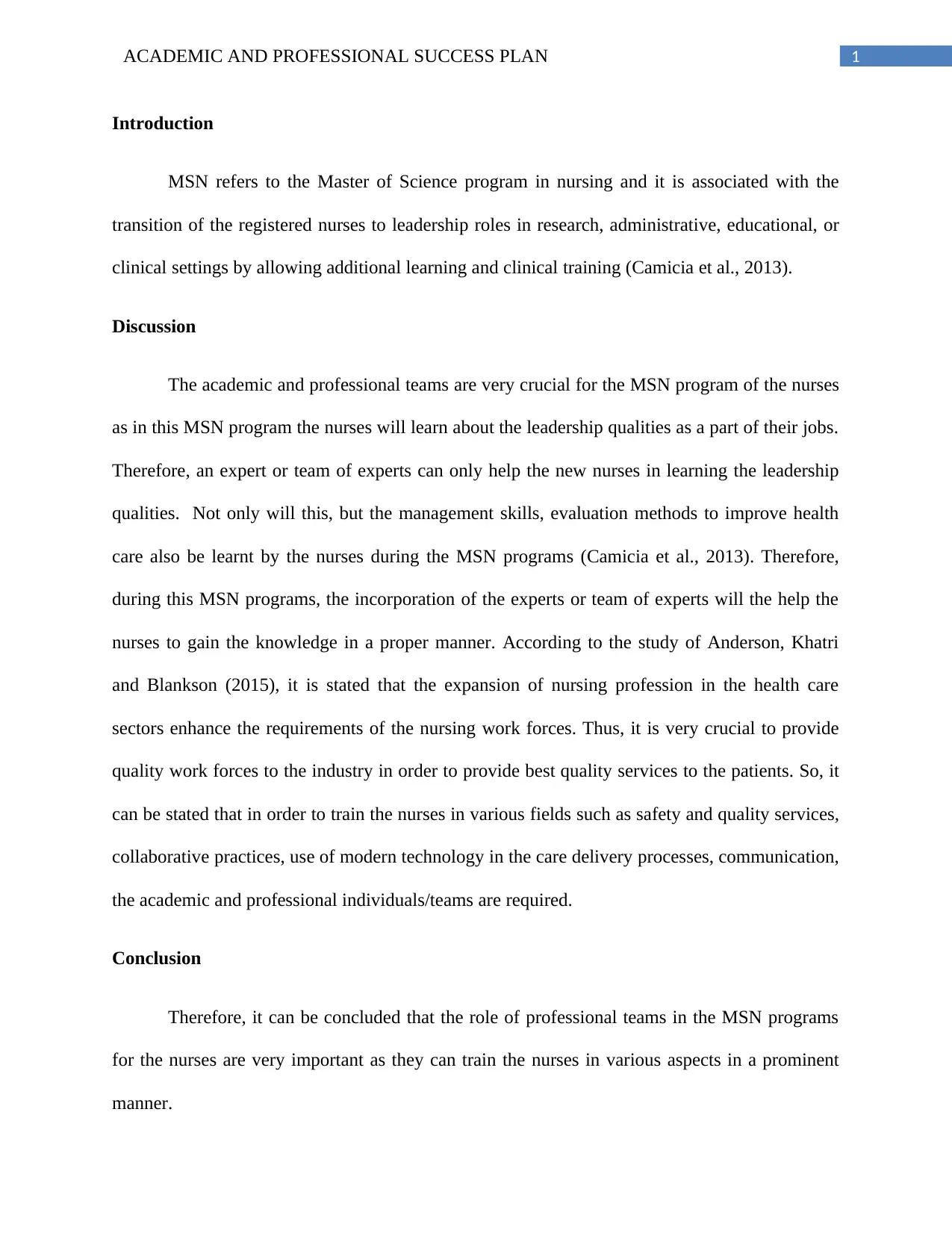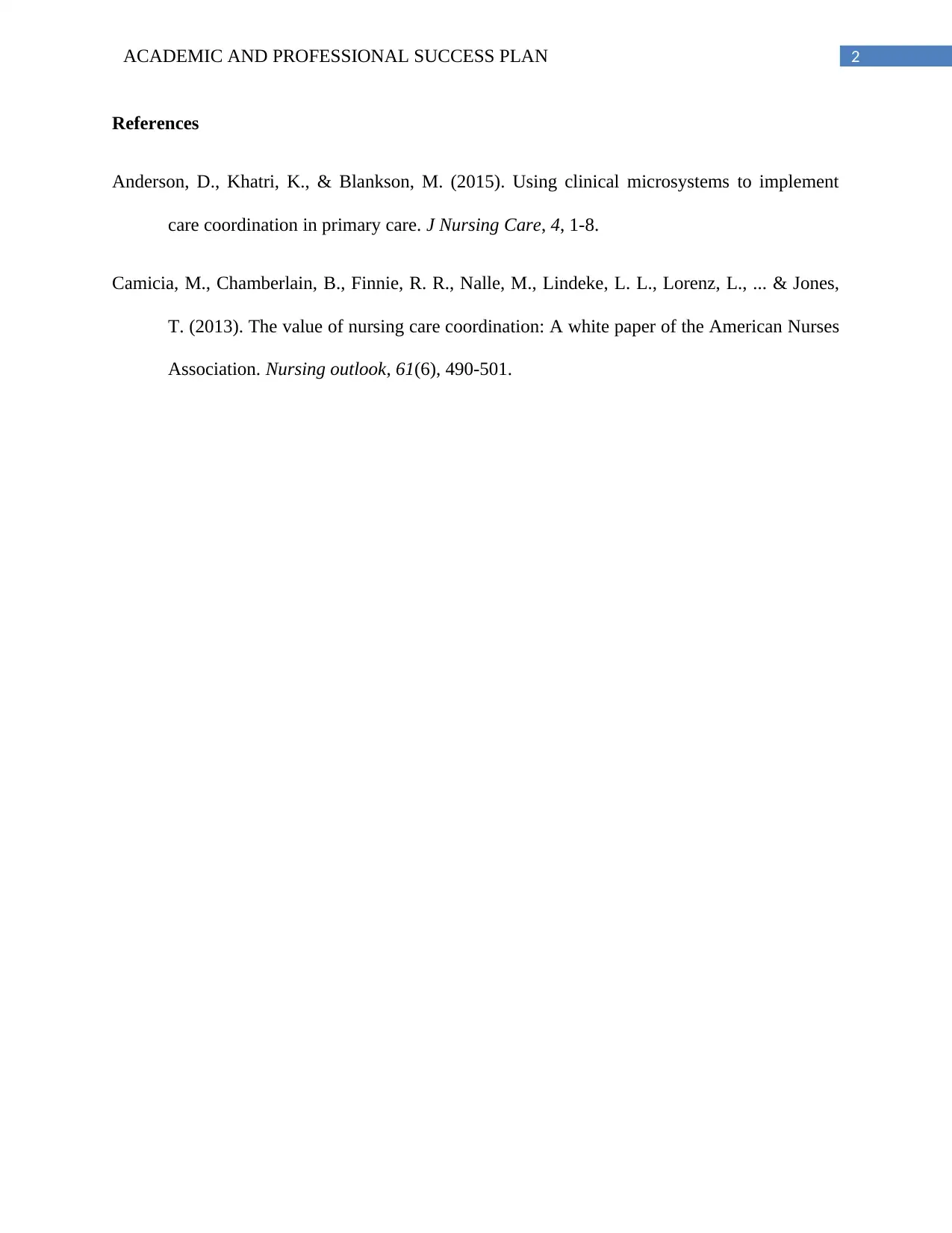Analysis of Academic and Professional Success Plan for MSN Program
VerifiedAdded on 2022/08/26
|3
|447
|24
Report
AI Summary
The assignment focuses on the Academic and Professional Success Plan within the MSN program, emphasizing the crucial role of academic and professional teams in nursing education. It highlights how these teams, including experts, contribute to developing leadership qualities, management skills, and evaluation methods essential for nurses. The report references studies like those by Anderson et al. (2015) and Camicia et al. (2013), which underscore the need for quality nursing workforces and the importance of training in areas such as safety, quality services, and the use of technology in healthcare. The conclusion reinforces the significance of professional teams in MSN programs for comprehensive nurse training. This report is available on Desklib, a platform providing AI-based study tools for students.
1 out of 3










![[object Object]](/_next/static/media/star-bottom.7253800d.svg)